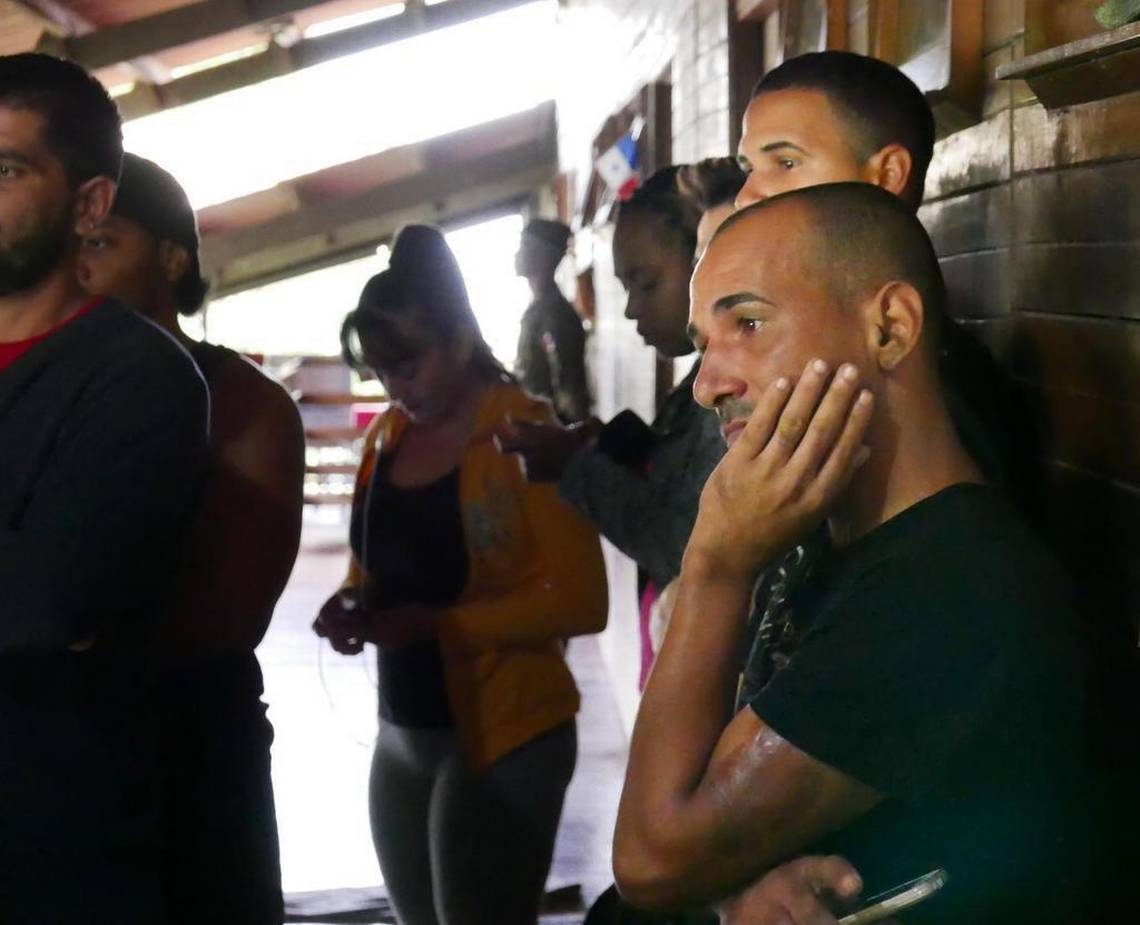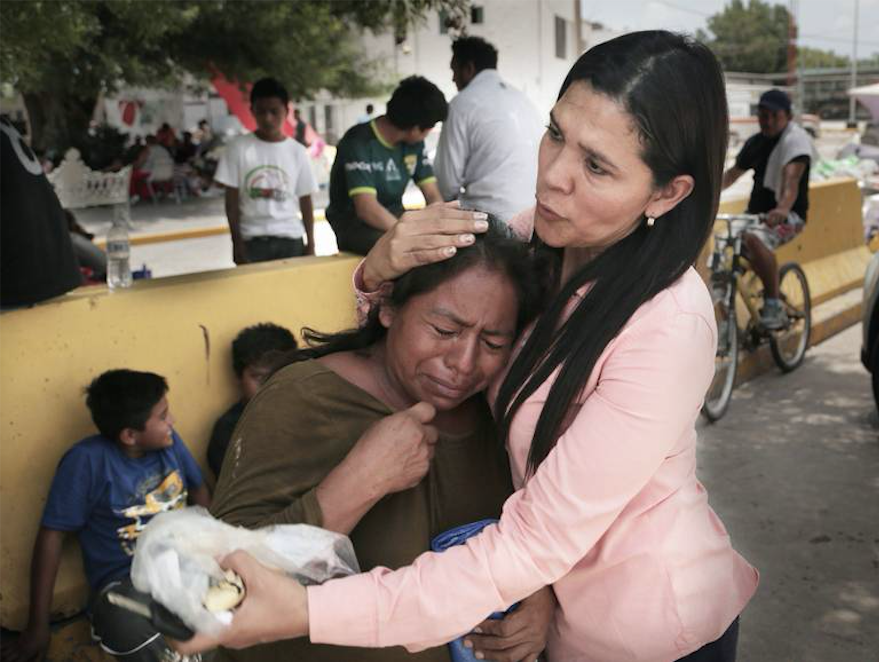
Known in historical terms as “heroic, undefeated and loyal,” the Mexican city of Matamoros has become a forced shelter for thousands of immigrants who wait more than a month for a meeting to ask for asylum in the United States.
Since Mexico and the United States reached an agreement earlier this year under a threat of U.S. tariffs on Mexican imports, the border city has lived an unprecedented immigration crisis with thousands of foreigners sleeping on its streets and overwhelming its social services.
“Mexico is not prepared for such a large number of asylum seekers returned from the United States,” said Matamoros Mayor Mario Alberto López Hernández from city office in the Mexican state of Tamaulipas.
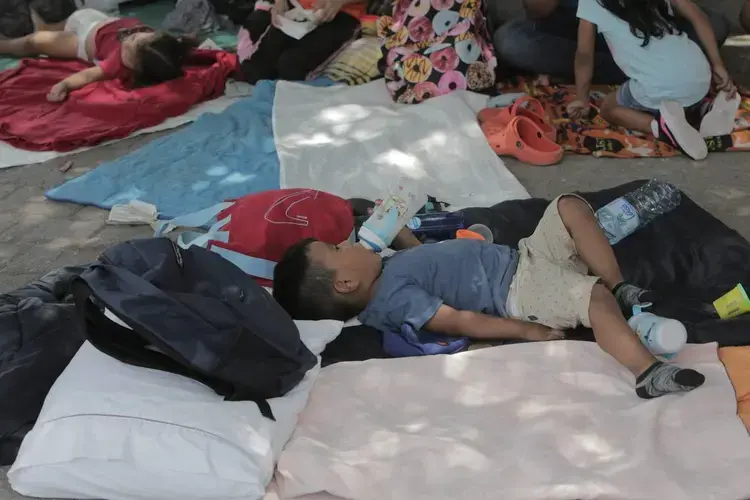
Under the Migrant Protection Protocols accord, Mexico must allow migrants who request asylum in the United States to remain in its territory until an initial decision is reached. They also provide work permits as well as health and educational services.
In reality, the municipality has barely managed to put five portable toilets in the park, leaving most of the immigrants to seek help from church programs while walking the streets in search of jobs, food or a shelter.
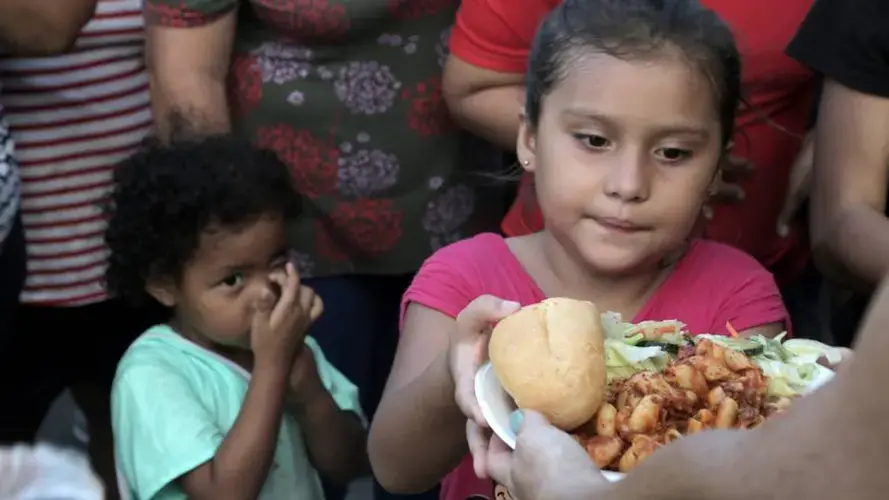
Near the border crossing, taped to window panes, there’s a list that contains that names of thousands of migrants waiting to hear about their asylum claims. The pace of the call-ups is determined by the U.S. Border Patrol. Sometimes they call up 10 people, sometimes less. There have been weeks when they called no one. The list is separated into men, women and families. The Beta Group, a special squad from Mexico’s National Immigration Institute, organizes the waiting line and tries to help the people on the list.
These are some of the stories of the thousands of migrants who come to the border to ask for asylum. Each is assigned a number according to their turn (upon arrival) so that their cases can be heard by U.S. immigration officials.
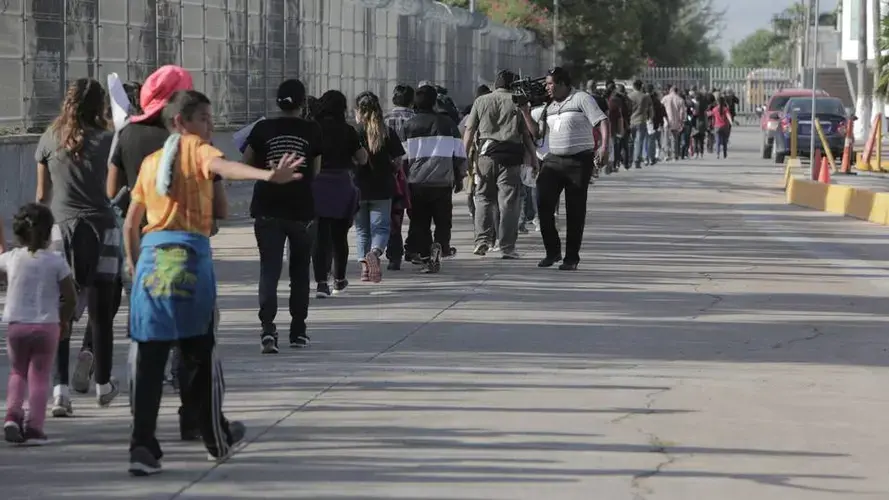
Yasmany, Cuban
He has the number 1781. “This thing with the list has been a total headache,” said Yasmany, a Cuban who like most of the waiting immigrants is afraid to give his last name out of fear of criminal gangs in Matamoros and possible repercussions against his asylum application.
“There’s no one here who can clearly explain the process. We live in fear that after months on the waiting list, they will change the laws and don’t allow us to apply for asylum. Everyone has a different version of the agreements between the United States, Mexico and Guatemala. We are afraid,” he said.
The Cuban migrant arrived at the border from Nicaragua, planning to be detained in the United States while his application for asylum was processed — a maneuver to use the Cuban Adjustment Act after one year in the United States to obtain permanent U.S. residence. But the agreement has changed all that and now he must wait, like the rest of Latin American and other immigrants, for his number on the list to be called up.
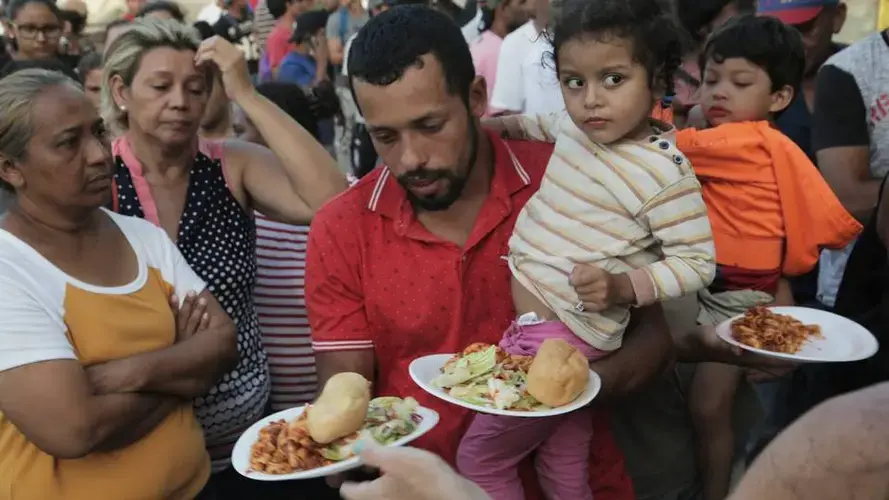
Brandon Alexander, Venezuelan
He has the number 2601. Brandon Alexander is one of the more than four million Venezuelans who have fled the country to escape the Nicolás Maduro regime. He’s 22 years old and moved across Latin America, walking and hitchhiking, in search of work and safe haven. For several months, he worked under slave-like conditions in Sayapullo, a mining town in Peru where Venezuelans have become a source of cheap labor for the illegal mining industry.
“I had virtually no food or drinking water. We worked 12 hours in a row for a few dollars. I sent that money to my mother and my grandmother, who stayed in Venezuela. I could barely carry the bags of ore, exhausted because of the hunger and tiredness. I cried, but I kept trying, thinking that without it my family would die from hunger,” he said.
Brandon Alexander said he wants President Donald Trump to “extend a hand” to Venezuelans. ”He should intervene militarily, now. We have a drug-trafficking government, and we Venezuelans have no option but to escape. In Venezuela, the armed colectivos (paramilitary groups) are in charge,” he said.
His dream is to reach Doral, the South Florida city that Venezuelans have turned into the capital of their diaspora and where his father lives.
He’s afraid of the criminal gangs in Matamoros, and has had to run at times because of fears that he would be kidnapped and held until his family pays a ransom.
“The only thing I want is to work hard, get things going so I can help my mother and grandmother. At some point, I would like to establish a foundation to help other Venezuelans who are going through what I’m experiencing,” he added.
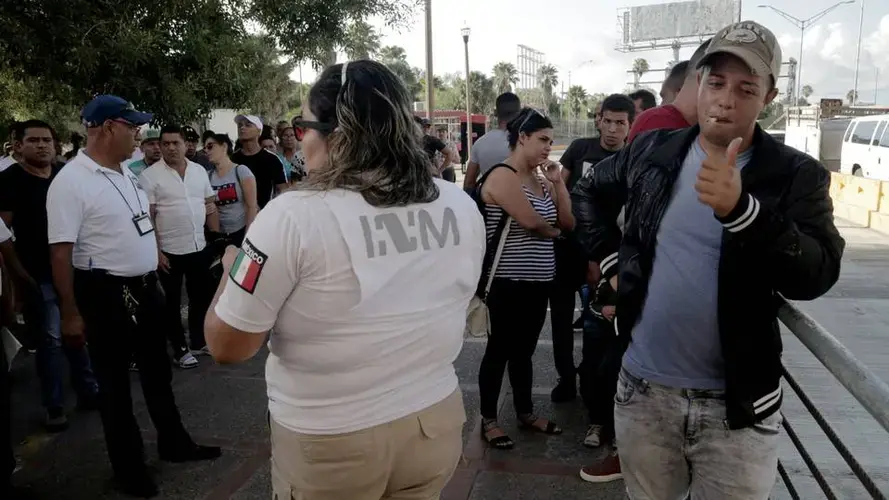
Ronald, Cuban
He has the number 1733. Ronald Sicilia Espinosa was living in the Cuban city of Las Tunas, on the east side of the island, when he decided to flee: “You can’t live well in Cuba,” he said.
“I had two businesses, one selling ground corn and the other vegetables. I also owned a pushcart and had someone who worked it for me,” he said. But government inspectors repeatedly fined him and confiscated his products. “In Cuba, no one can be wealthy, and they consider that wealth is earning a few dollars per day. I lived in an illegal neighborhood, and they wanted to demolish my house. I had to get out and leave my three small children there.”
From Cuba, he traveled to Guyana, one of the few countries that does not require a visa for Cuban visitors. There he started on the path taken by many immigrants, crossing Brazil’s Amazon jungle and winding up in Uruguay. “I was thinking of staying in Uruguay, but it’s a communist country, just like Cuba. I asked for political asylum and was denied. For them, Cuba is a normal country,” he said.
In Matamoros, he added, “we are living in demeaning conditions. We did not chose to emigrate. Today my son is two years old and I haven’t seen him for four months. The first thing I want to do in the United States is work, to get all my family out of Cuba. You have to be crazy to stay in Cuba.”
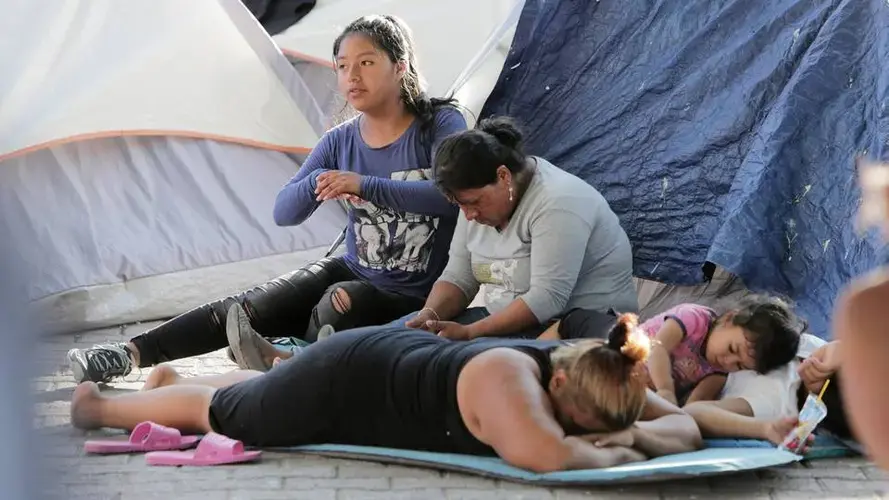
Jeison, Honduran
He has the number 1305. Jeison left his home in the Honduran province of Lempira with his 2 1/2-year-old son to look for work in the United States. He had heard other Hondurans say that “up north” they were welcoming anyone who wanted to work. He had never left Honduras, a country lashed by crime and drug traffickers and where even President Juan Orlando Hernández is alleged to have received drug money.
“In my country, there’s no work,” Jeison said. “I was overcome with disappointment when I saw the restrictions to getting (into the United States). There was no opportunity to do anything.”
Jeison is tall, and his hands are leathery from farm work. He doesn’t like to talk much. He seems much older than his 30 years. His dream was “to build a little house” and give his son a better life, keeping him away from the gangs that have overrun his country.
“It could not be,” he said, tears welling in his eyes, his body hunched over. U.S. officials denied his request for asylum. Now he must return to his country. He could remain in Mexico, but that idea terrifies him. He lives with his son and several dozen Central American and African migrants in a Catholic church shelter. “I am going back to Honduras, and I will never leave again,” he said, his voice cracking with emotion.
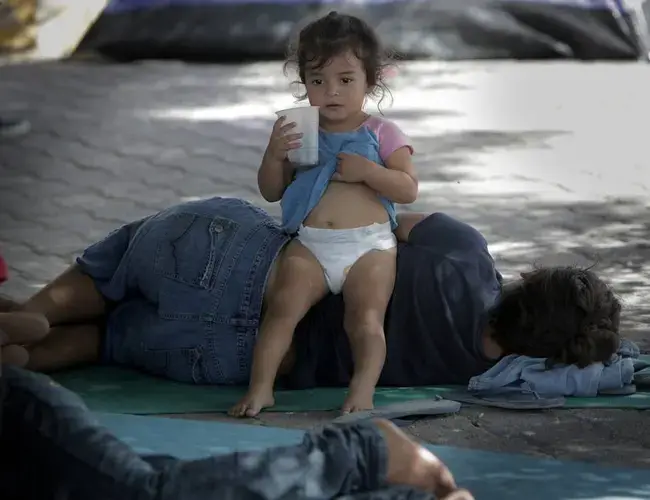
Brian, Nicaraguan
He has the number 2159. Brian cannot forget March 22, 2018, the day he left Costa Rica and headed for the U.S. border. He had joined the protests in his native Nicaragua against “the dictator” Daniel Ortega and his wife Rosario Murillo that claimed the lives of hundreds of young people who opposed the authoritarian rule of the presidential couple.
“I had been in the police force before the protests, and left. The government was looking for me, to recruit me and force me to repress my brothers and sisters,” he said.
“I swore before the flag to defend the people of Nicaragua and not repress the people. There are Cuban officers in Nicaragua. They are responsible for the repression in my country, and they threatened to kill me if I did not join the death squads, the hooded men that Ortega uses to kill the protesters.”
After fleeing to Costa Rica, he decided to head to the U.S. -Mexico border but ran into more problems in Matamoros. “I’ve already been robbed once and they took my telephone and money. A friend sent me money from Nicaragua so I could stay here,” he said. “If I go back to Nicaragua I’ll be sent directly to El Chipotle (a maximum security prison known as a torture center). I’ve been here several months already.”
Days after the interview, Brian was savagely beaten by a gang of thieves as he left the cafeteria where he was working as a kitchen helper. He has not been heard from since.
His friends fear that he decided to return to Costa Rica or Nicaragua.



